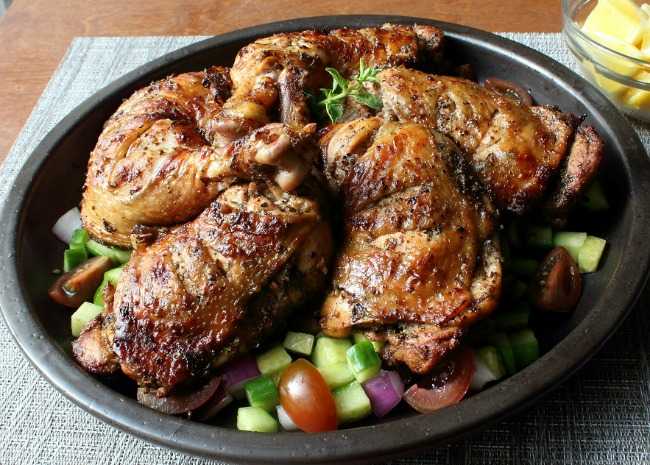Flavor Infusions
How to Marinate Chicken Right and Safely
When you marinate chicken, the meat is your blank canvas; the marinade, your palette with which you paint on the deliciousness. And there are so many options! Here's how to get the best results from your flavor-infusing marinades, plus tons of recipes -- with exciting flavor combinations you'll love.
Quick Tips for How to Marinate Chicken
The formula for a great marinade is simple: An acid ingredient (i.e., vinegars or lemon and lime juices) combines with a fat ingredient (like vegetable, nut, or chile oils) plus additional seasonings, including spices and herbs, syrups, zests, and any secret ingredients that lend a signature something to the mix. The possible flavor combinations are practically endless.
Photo by Chef John
You can also tenderize with enzymatic ingredients, like yogurt, milk, honey, or pineapple juice. Use them in place of the acid ingredient or in combination with them. Chef John likes grilling with chicken marinated in a yogurt-based marinade: "It tenderizes slightly, without turning the meat into mush," he explains, "and imparts a tangy flavor that lifts all the other flavorings."
For best results, give your marinade a quick whirl in a blender to emulsify the acids and fats into a smooth, luscious solution -- or make it a quick workout, and shake vigorously in a jar with a tightly sealed lid.
Time is on your side. Tough cuts of beef may benefit from lengthy marinades, but chicken actually does best with short soaks. With chicken, two hours is usually plenty of time to infuse flavor. In fact, with too much soaking, some acidic marinades may do the opposite of what you want -- they can actually toughen chicken, denaturing proteins and messing up the texture of the meat. Bottom line here, marinating chicken is a great idea even on busy days when you want extra flavorful chicken but don't have all day to wait around on a marinade.
Bonus tip: Because chicken thigh meat is a little fattier than chicken breast meat, chicken thighs will stay moist and delicious even after a little extra time on the grill, time that might dry out chicken breasts. Thighs are also good for assertive marinades and sauces.
Tips for How to Safely Marinate Chicken
- Use one cutting board exclusively for prepping chicken and another for prepping other ingredients. If you've cut chicken first, wash the knife thoroughly in hot soapy water before using it to prep other ingredients.
- Place the marinade and chicken in a closed, non-reactive container (glass or ceramic dishes, and large resealable plastic bags). Don't use aluminum containers; they can create gross metallic flavors.
- Marinate chicken in the refrigerator.
- To use leftover marinade as a sauce, bring it to a simmer in a saucepan and cook it, at a boil, for 3 minutes. This will kill any bacteria that's built up.
Source: AllRecipes.com





